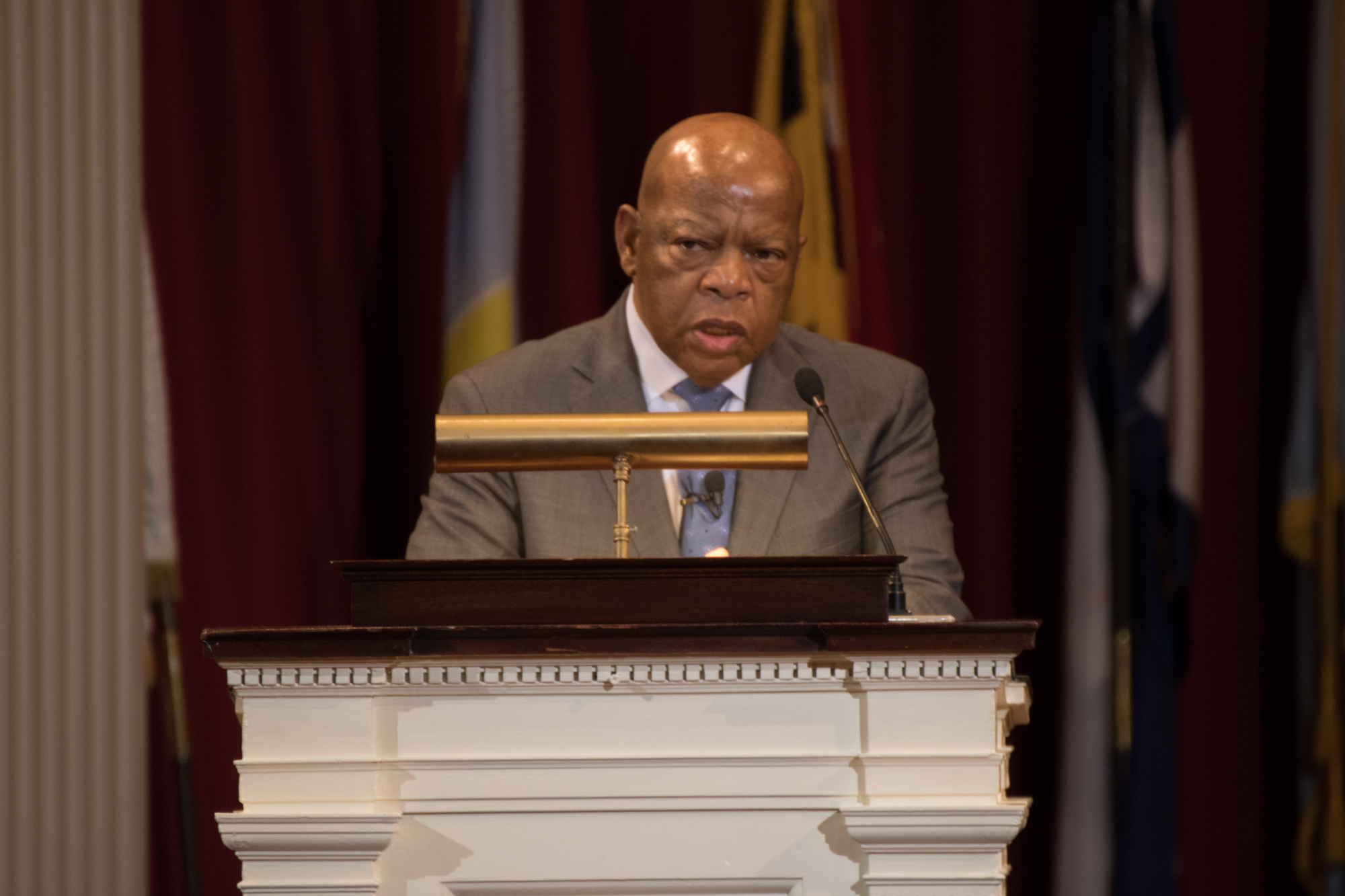Views expressed in opinion columns are the author’s own.
The first time Rep. John Lewis took part in a sit-in he was, like many of us, a young college student. There are photographs of him then — the young son of sharecroppers and mentee of Martin Luther King Jr. — unwaveringly enduring the violence that accompanied the fight for civil rights. From that point on, Lewis could be spotted at many major civil rights protests in the South.
Lewis sat at lunch counters during sit-ins, rode Greyhound buses during the Freedom Rides, led the infamous “Bloody Sunday” march across the Edmund Pettus Bridge in Selma and spoke at the March on Washington. As leader of the Student Nonviolent Coordinating Committee, Lewis was the backbone of the student-led arm of the Civil Rights Movement.
On Oct. 12, Lewis delivered a moving speech at the University of Maryland about his and Andrew Aydin’s graphic novel, March: Book Three. At the age of 77, in a time of great political unrest and the rise of internet “slacktivism,” Lewis fuses the lessons of the past with the lessons of the present to educate young people about their duty to get into “good trouble.”
Lewis reminded students to “act as headlights, not taillights” in the fight for civil rights and equality. This ethic creates a culture of proactive, student-driven activism surrounding issues of injustice, something particularly salient at this university, where numerous incidents grounded in hatred and bigotry have taken place in the past year.
College campuses have long been spaces in which activism and organizing occur, sparking necessary discussion and moving the needle on issues of equality and justice. All students at this university, not just those directly impacted by hate, need to consider and honor the activists before them.
This university has a long history of student activism reaching back to the 1960s and ‘70s. After four students were killed at Kent State University, massive protests against the Cambodian bombing campaign embroiled this university for several days. Students occupied the ROTC office and the administration building. More than a thousand National Guard troops were activated to tamp down the student uprising. The photographs and accounts of these protests are a reminder that students have immense power and a responsibility to use it.
As Lewis reminded us, “[We] have a moral obligation, a mission and a mandate when you leave here to go out and seek justice, for all. You can do it, you must do it.” The urgency of Lewis’ call to get into good trouble is magnified by the extremity of the current political climate, in which the powerful undermine marginalized groups’ rights and safety at an alarming rate.
It is not the responsibility of the most marginalized to convince others their humanity matters, rather those in positions of power must employ their privilege to support them however they can. As students, we collectively hold tremendous power over the spaces we inhabit, whether classrooms, stadiums or performance halls. As Lewis taught us, it is our collective responsibility to use our voices and talents to partake in the fight for equality and justice throughout, and beyond, our four years at this university. Let’s keep our eyes on the prize.
Sarah Riback is a sophomore English and sociology major. She can be reached at riback.sarah@gmail.com.



